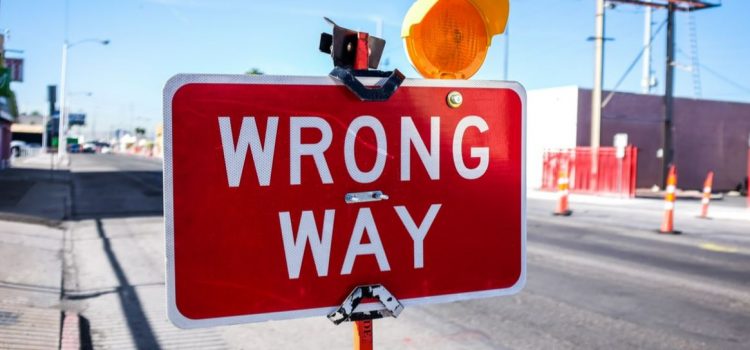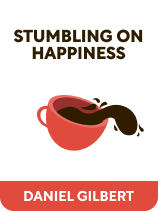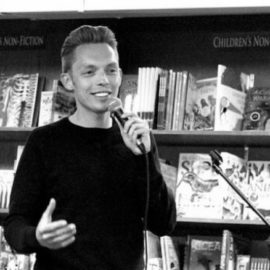

This article is an excerpt from the Shortform book guide to "Stumbling on Happiness" by Daniel Gilbert. Shortform has the world's best summaries and analyses of books you should be reading.
Like this article? Sign up for a free trial here .
Why do people continue to make bad choices despite tons of advice on how to avoid them? How does your fabricated reality lead you to make poor decisions?
Daniel Gilbert, the author of Stumbling on Happiness, has a theory about why this happens. Gilbert believes that your brain fabricates beliefs about your past, present, and future that don’t always align with reality. Gilbert’s theory is that this fabricated reality leads you to make decisions about the future that aren’t conducive to happiness.
Here are the reasons people make bad choices, according to social psychologist Daniel Gilbert.
1. You Aren’t Aware You’re Fabricating Your Reality
Though you always supplement memories with assumed information, interpret events in the present positively, and imagine improbable futures, you don’t recognize you do this, says Gilbert. You believe you see, remember, and imagine the world exactly as it is and that your memories, experience of the present, and imaginings of the future are therefore objectively correct.
(Shortform note: According to Gilbert, you fabricate your entire reality but believe incorrectly that you perceive it objectively. However, this view may be too extreme: Sometimes, you do perceive the world objectively. For instance, when you touch a rose, you don’t fabricate your reality of being in pain—you experience the pain objectively. On the other hand, when your friend fails to smile at you and you’re immediately certain they’re mad at you, you’re fabricating your reality to a higher degree.)
2. Your Lack of Awareness Makes You Happier Now
Your lack of awareness that you’re constantly fabricating your reality is in some ways good, writes Gilbert, because it lets you enjoy a “blissfully ignorant” happiness in the present. As we’ve shown, your brain goes to great lengths to ensure you’re as happy as possible now: As we discussed, it uses five techniques to interpret events in the present to reflect well on you, and it creates fabricated visions of the future because doing so is pleasurable and the perceived control over your life makes you happy. Gilbert contends that if you saw through this positive interpretation of the present and recognized that your vision of the future was fundamentally incorrect, you wouldn’t be as happy as often.
| Being Happier While Also Being Aware Gilbert says your present happiness results from ignorance that you’re fabricating your reality. However, not everyone agrees that happiness in the current moment need merely be the result of ignorance. You can and should actively choose to be happy in the present as often as you can, argues Norman Vincent Peale in The Power of Positive Thinking. Do this by making a habit of being happy through your thoughts, actions, and lifestyle: Think and behave in ways known to create happiness. For instance, keep your mind free from worry, help others, and live simply. |
3. Your Lack of Awareness Leads to Poor Choices About What to Do in the Future
Unfortunately, continues Gilbert, your happiness rooted in blissful ignorance isn’t permanent. Your lack of awareness that you’re fabricating your reality means you use fabricated, inaccurate memories and experiences to inform your choices about the future. Because these choices are based on falsehoods and overly optimistic imaginings, they often lead you to make bad choices, which do not make you happy.
For instance, based on a memory of a short hike you took and think you enjoyed, you fabricate a vague vision of yourself in five years in which you’re climbing Mount Kilimanjaro and enjoying it. This vague and fabricated vision informs your decision to begin training for the climb. However, it turns out this decision makes you miserable because you hate physical exertion. In fact, you hated the physical exertion of your initial short hike, but strategically omitted that negative detail when calling on your memories to create your vision of the Kilimanjaro climb. The choice to climb Kilimanjaro ultimately becomes a poor one because of these delusional imaginings.
| Why Don’t All Choices Make Us Happy? Over the last few chapters, we’ve seen that our brains are wired to keep us as happy as possible as often as possible. This raises the question: If our minds are hard-wired to make us deludedly happy no matter what, why does Gilbert believe that certain decisions about the future make us unhappy? Shouldn’t our positive, fabricated interpretation of the world kick in to allow us to be happy even if we make “wrong,” unhappiness-producing choices about the future, as Gilbert describes above? We might explain this by saying that certain choices about the future prevent us from using one or more of our previously described happiness-maintaining techniques. For instance, if you join a group of people training to climb Mount Kilimanjaro, you’re no longer surrounding yourself with friends who bolster your belief that climbing the mountain will be fun and easy. Instead, you’re surrounded by experienced people who tell you that the climb will be incredibly difficult—and this erodes your happiness as a result of your choice. |

———End of Preview———
Like what you just read? Read the rest of the world's best book summary and analysis of Daniel Gilbert's "Stumbling on Happiness" at Shortform .
Here's what you'll find in our full Stumbling on Happiness summary :
- A look at how your brain fabricates your reality leading you to make bad decisions
- The six specific types of bad choices people make
- How to improve your decision-making in the future






